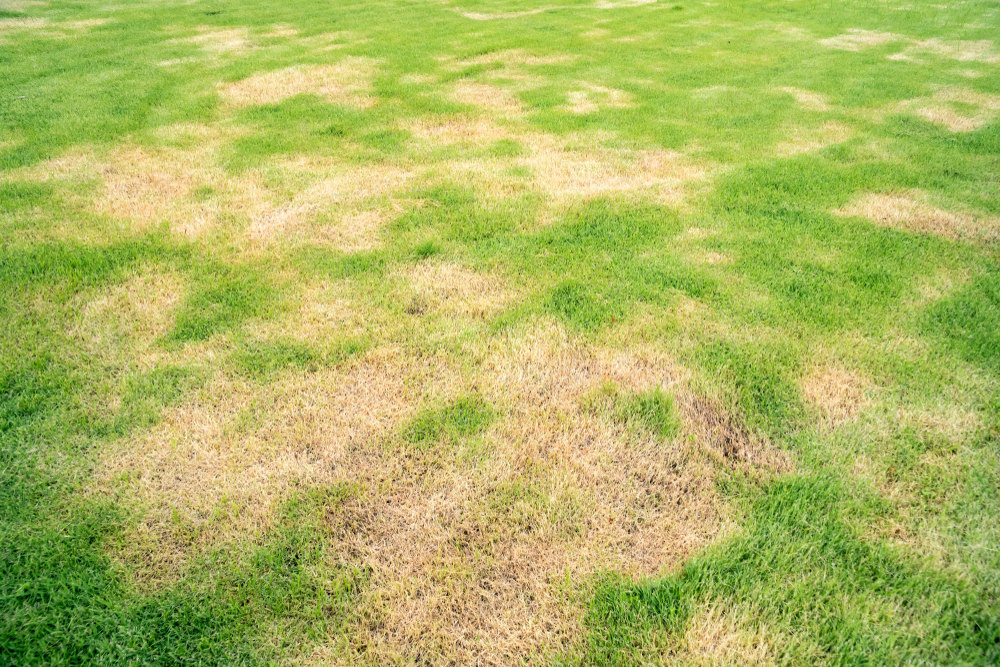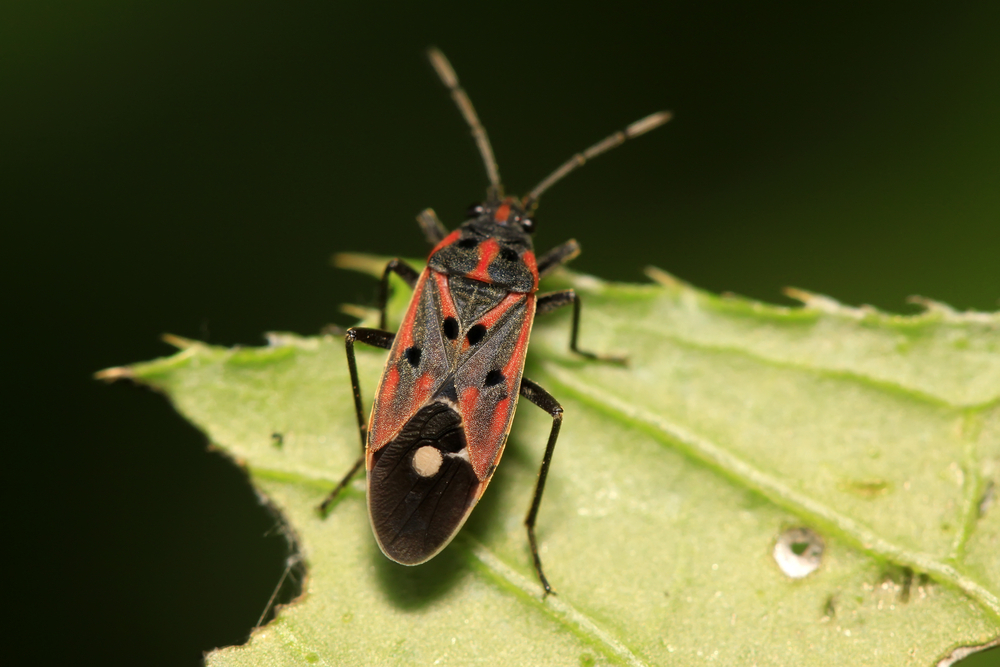At the beginning of the month, we told you about armyworms and, in a shocking expose, revealed they're not worms or active military members. And after that blog, we can take a hint. You want more bug content!
 Today is your lucky day because we're about to give you the skinny on another landscape scourge. Progreen is rounding out the month with facts you didn't know you needed about chinch bugs.
They hurt your landscape - now it's time to understand them, so your Georgetown yard will have no chinch in a cinch.
Today is your lucky day because we're about to give you the skinny on another landscape scourge. Progreen is rounding out the month with facts you didn't know you needed about chinch bugs.
They hurt your landscape - now it's time to understand them, so your Georgetown yard will have no chinch in a cinch.
Ch-signs of Chinch
You may need to be concerned about a chinch bug infestation if you have dry and discolored grass patches. This damage results from them thriving in warm weather, especially in hot spots on your lawn. But, like many other grass issues, it can also be a sign of other problems, so it's best to consult a pro. These insects are small, so they're often hard to spot, and we only notice them once they've destroyed some lawn. However, it's normal to have a few of these critters (10 to 15 per square foot of property), and at that rate, they rarely cause significant damage to your lawn.Natural Predators
A few chinch bugs don't necessarily cause a problem for your grass because of their natural predators. Ladybugs and ants munch on chinch, ensuring your ecosystem stays intact. That's one of the reasons it's good to encourage these other friendly insects.Revenge of the Chinch
When the weather gets hot and dry, ants and ladybugs struggle to survive, and as the natural predators die off, chinch can multiply to 100 or more per square foot of lawn! Unfortunately, when their numbers get that high, they can wreak havoc on your landscape.Chinch Bugs Are Nasty Little Grass Vampires
Chinch bugs are tiny insects that eat grass and thrive in warm weather. They are about .16 inches, typically red to dark brown, with white wings. They hibernate during cold weather and emerge in the spring, eating and laying the eggs of a new generation. The grass is the favorite food of chinch bugs, hence the problem. But they don't just eat like normal creatures. Instead, in what we can only describe as nightmare fuel, these little grass vampires sink their sharp beaks into grass blades and suck out the sap. This feeding behavior dehydrates your grass, creating those dry, discolored, and bare spots we discussed in your lawn.Treatment: The Rise of Progreen
If you've discovered an infestation, it's time for pest control. Progreen provides lawn treatments to eliminate all your lawn and landscape pests. We can come in early to prevent the problem from growing. The sooner you contact Progreen, the better off your lawn will be since pests multiply quickly, and catching them early on can allow your property to recover without excess costs to you.Prevention: Keep Your Lawn Healthy
Like many things in life and landscaping, prevention is always better than cure. So one of the best things you can do to prevent chinch and other infestations is to keep your lawn healthy.Water
At Progreen, we're big fans of irrigation. Not only does it water your lawn efficiently and consistently, saving you time and money, but it also prevents you from wasting water. So when we professionally install and calibrate your irrigation system, your lawn will get the water it needs when it needs it, without overdoing it and keeping you greener in more ways than one!Fertilizer
 We all need food to survive. As last week's blog described, your plants are no different. Our lawn particularly needs fertilizer added to it to thrive since lawns generally are made up of similar plants that always use the same nutrients.
We all need food to survive. As last week's blog described, your plants are no different. Our lawn particularly needs fertilizer added to it to thrive since lawns generally are made up of similar plants that always use the same nutrients.
